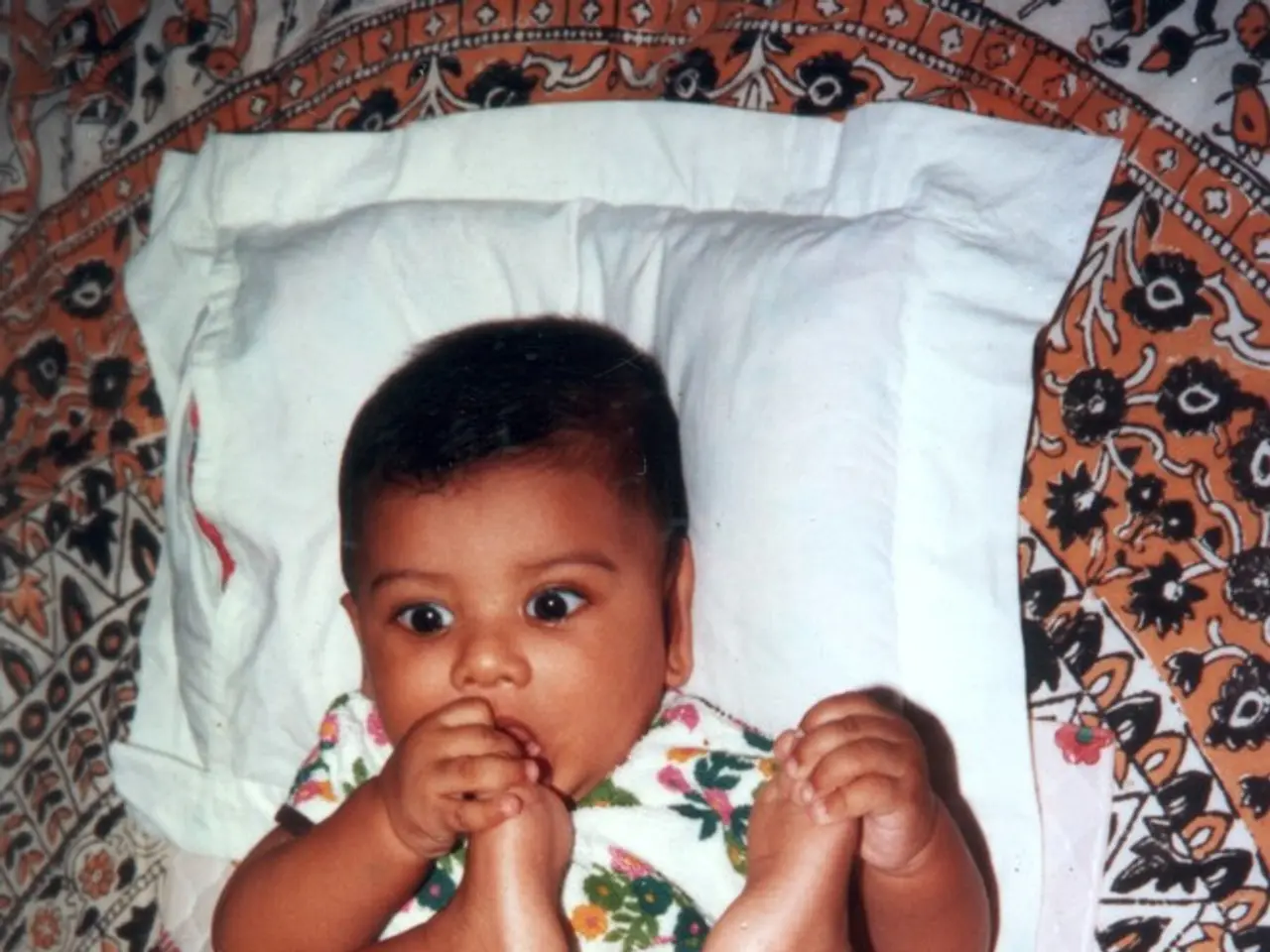Infant Jaundice: Causes, Signs, and Remedies
Infant jaundice, a common condition affecting over half of all newborns, is characterised by the yellowing of a baby's skin and eyes. This condition usually appears within the first week of life and is caused by an excess of bilirubin, a waste product produced when red blood cells are broken down.
While mild jaundice is usually harmless and requires no treatment, severe jaundice can be a cause for concern. In such cases, underlying disorders such as liver disease, sickle cell anemia, cephalohematoma, sepsis, and various other conditions may be present.
Premature birth, blood group incompatibility between mother and baby, birth trauma, inadequate feeding or dehydration, and not getting enough breast milk are common risk factors associated with severe infant jaundice. In some cases, the cause may be unclear.
Premature babies are particularly susceptible to severe jaundice due to their immature livers' inability to process bilirubin efficiently. Similarly, blood group incompatibility between mother and baby, such as Rh or ABO incompatibility, can lead to increased red blood cell breakdown and elevated bilirubin levels.
Birth trauma, causing significant bruising or bleeding under the skin, and inadequate feeding or dehydration can worsen jaundice by reducing bilirubin elimination. Not getting enough breast milk can also lead to insufficient bilirubin clearance, potentially resulting in breastfeeding-related jaundice.
If bilirubin levels become dangerously high, they can cause toxic effects such as acute bilirubin encephalopathy and kernicterus, resulting in permanent brain injury. Therefore, early recognition and treatment are critical to preventing serious complications.
Treatment for severe jaundice may require hospitalization for phototherapy, exchange blood transfusion, or intravenous immunoglobulin. Untreated jaundice may lead to complications such as deafness, cerebral palsy, and in severe cases, kernicterus.
Breast-feeding jaundice occurs in the first week of life, while breast milk jaundice occurs after 7 days of life, peaking at 2-3 weeks, due to substances in the breast milk interfering with the breakdown process of bilirubin.
Doctors recommend testing for jaundice before hospital discharge and again 3-5 days after birth. It is also important to note that a newborn's urine should be colourless, while breast-fed babies should have greenish-yellow stools, and those of bottle-fed babies should be a greenish-mustard colour.
To reduce the chances of an infant developing jaundice, it is best to ensure they are well-fed. Breast-fed babies should be fed 8-12 times a day in the first week or so, and formula-fed babies should be fed 1-2 ounces of formula every 2-3 hours.
In summary, while infant jaundice is a common condition, severe cases can be a cause for concern. Early recognition and treatment are key to preventing serious complications. Parents and caregivers are encouraged to monitor their babies for signs of jaundice and to seek medical advice if concerned.
- Severe cases of Alzheimer's disease, a mental health condition, can be a cause for concern, just like severe jaundice in newborns.
- Mild cases of HIV, a medical condition, are usually harmless and require no treatment, similar to mild jaundice in newborns.
- In some cases, MS, a neurological disease, may be present along with other underlying disorders that cause severe jaundice.
- Science and health-and-wellness communities should focus on researching CBD, a substance, as a potential treatment for conditions like Alzheimer's and jaundice.
- A mother's AD, or antibodies, can cause blood group incompatibility between mother and newborn, leading to various medical conditions including severe jaundice.
- UC, or ultraviolet-C, light therapy, a popular treatment in medical-conditions such as jaundice and acne, can help in the effective clearance of bilirubin in severe jaundice cases.




